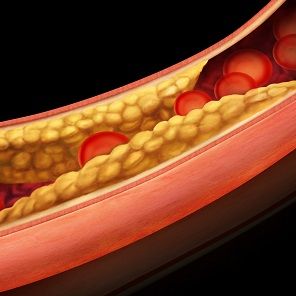Carotid Plaque Contributes to Higher Risk of CV for Psoriatic Arthritics, But Preventative Care Underused
Psoriatic arthritis patients with carotid plaque have a higher risk of developing cardiovascular disease (CV), but don’t always receive the proper preventative care to manage that risk.

Psoriatic arthritis (PsA) patients with carotid plaque have a higher risk of developing cardiovascular disease (CV), but don’t always receive the proper preventative care to manage that risk. The study was published in the journal Arthritis Research & Therapy on August 2, 2016, and was conducted by Michael Lucke, MD, of the Department of Rheumatology in the Allegheny Health Network and colleagues.
Even though it is documented that PsA patients have a higher risk of developing cardiovascular disease compared to the general population, the researchers assert that “there remains an unmet need in identifying and addressing CV risk in PsA,” adding that there is a lack of consensus and guidelines regarding treatment among experts in the United States. This study was designed to examine how referring PsA patients who have carotid plaque to preventive cardiology care would impact modifications to lessen CV risk.
The researchers used automated referrals through the participants’ electronic health records (EHRs) to complete this study. A total of 87 patients participated, and all were referred to preventive cardiology services. “Carotid plaque was identified in 34/87 (39%) of patients,” said the researchers. Several factors were significantly correlated with carotid plaque: older age, a history of hypertension, triglyceride levels, smoking, and higher LDL levels. Swollen joints, tender joints, and length of cutaneous psoriasis were not notably different between the two groups.
Out of the total 87 participants, the researchers report, “only 9 completed the preventive cardiology appointments after enrollment.” There was no difference in appointment attendance rates between those who had carotid plaque and those who did not. The researchers say, “Lack of appreciation of CV risk by patients, primary providers, and specialists may all contribute to the low referral rate.”
The small sample size and the cross-sectional design of this study are limitations, along with the relatively short follow-up time frame. However, the authors note, “The low rates of preventive cardiology clinic attendance despite automatic referral merits further investigation.”